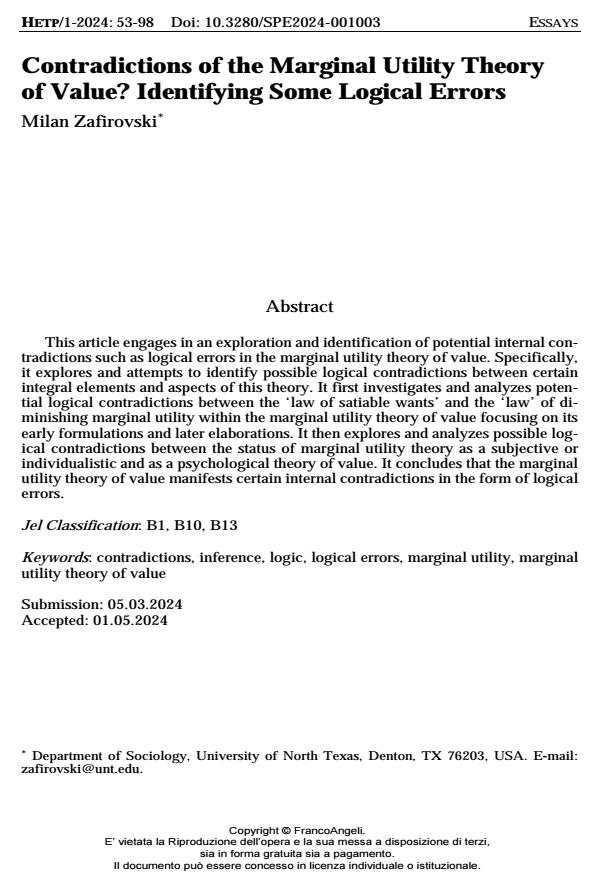Contradictions of the Marginal Utility Theory of Value? Identifying Some Logical Errors
Titolo Rivista HISTORY OF ECONOMIC THOUGHT AND POLICY
Autori/Curatori Milan Zafirovski
Anno di pubblicazione 2024 Fascicolo 2024/1
Lingua Inglese Numero pagine 46 P. 53-98 Dimensione file 198 KB
DOI 10.3280/SPE2024-001003
Il DOI è il codice a barre della proprietà intellettuale: per saperne di più
clicca qui
Qui sotto puoi vedere in anteprima la prima pagina di questo articolo.
Se questo articolo ti interessa, lo puoi acquistare (e scaricare in formato pdf) seguendo le facili indicazioni per acquistare il download credit. Acquista Download Credits per scaricare questo Articolo in formato PDF

FrancoAngeli è membro della Publishers International Linking Association, Inc (PILA)associazione indipendente e non profit per facilitare (attraverso i servizi tecnologici implementati da CrossRef.org) l’accesso degli studiosi ai contenuti digitali nelle pubblicazioni professionali e scientifiche
This article engages in an exploration and identification of potential internal contradictions such as logical errors in the marginal utility theory of value. Specifi-cally, it explores and attempts to identify possible logical contradictions between certain integral elements and aspects of this theory. It first investigates and ana-lyzes potential logical contradictions between the ‘law of satiable wants’ and the ‘law’ of diminishing marginal utility within the marginal utility theory of value fo-cusing on its early formulations and later elaborations. It then explores and ana-lyzes possible logical contradictions between the status of marginal utility theory as a subjective or individualistic and as a psychological theory of value. It con-cludes that the marginal utility theory of value manifests certain internal contra-dictions in the form of logical errors.
Parole chiave:contradictions, inference, logic, logical errors, marginal utility, marginal utility theory of value
Jel codes:B1, B10, B13
Milan Zafirovski, Contradictions of the Marginal Utility Theory of Value? Identifying Some Logical Errors in "HISTORY OF ECONOMIC THOUGHT AND POLICY" 1/2024, pp 53-98, DOI: 10.3280/SPE2024-001003